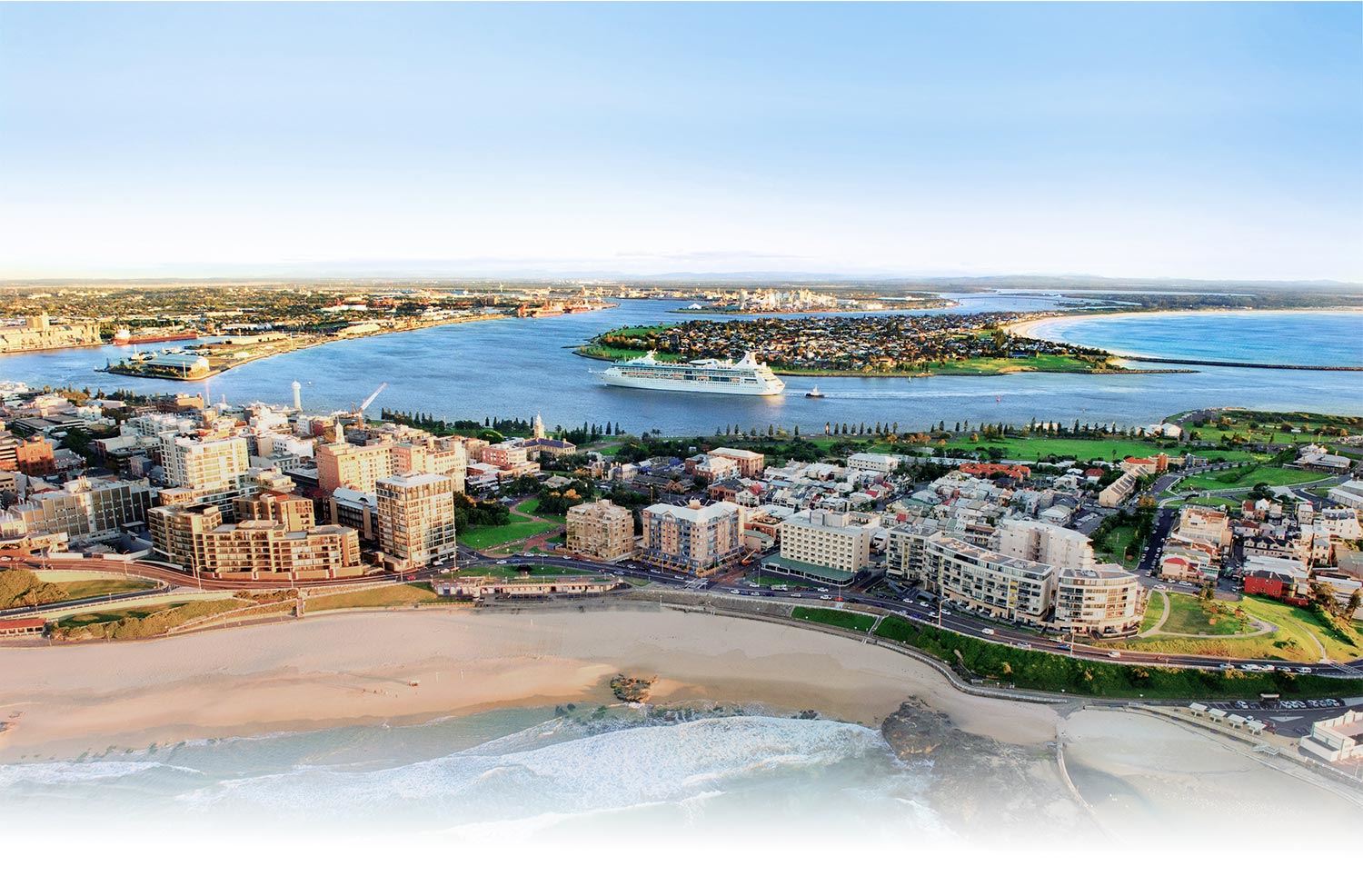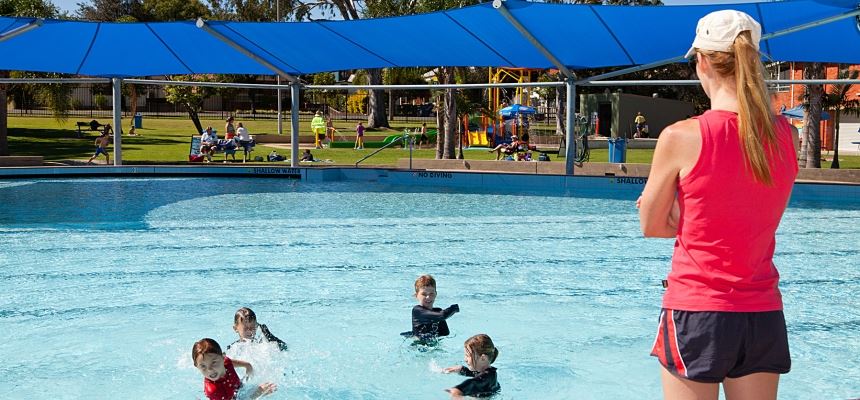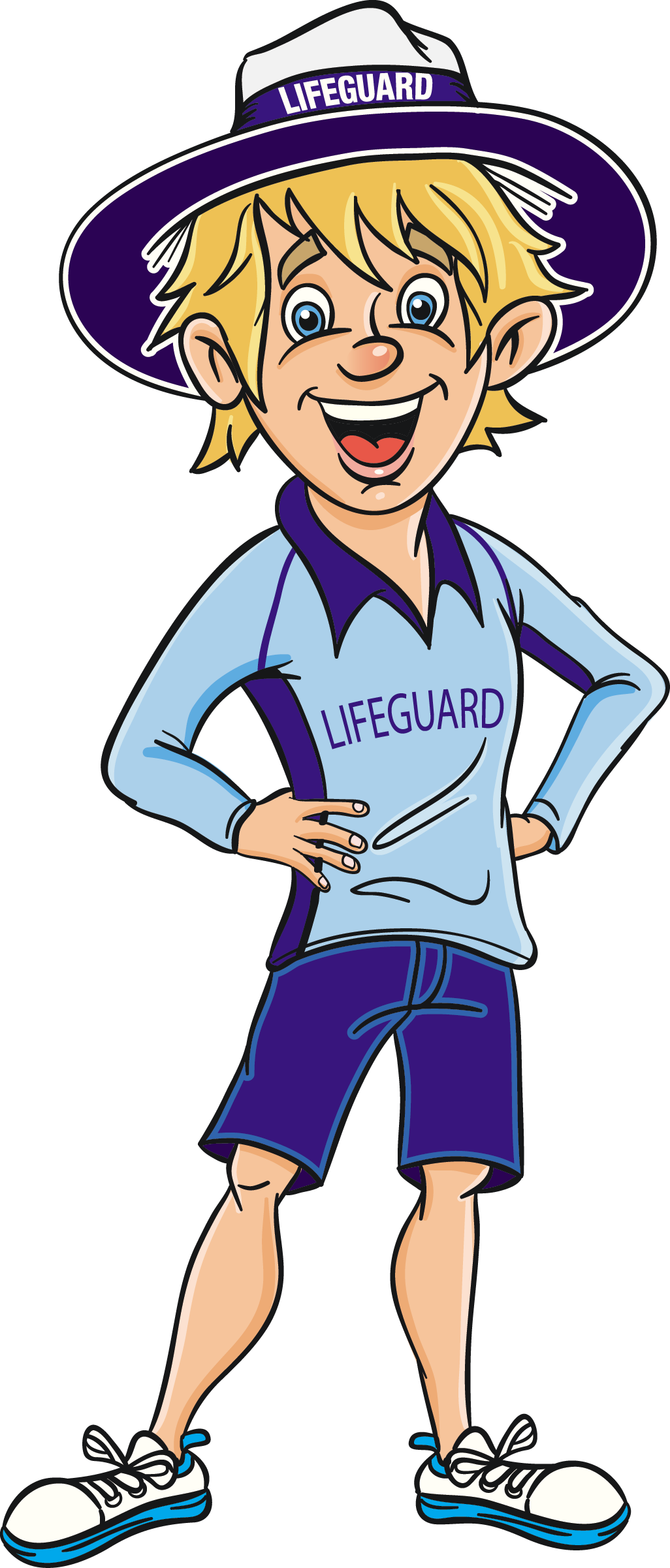
Water Safety Tips

Water Safety is for everyone and applies to beaches, pools and open bodies of water such as rivers, lakes and dams.
Top tips for beach safety
- Check conditions – the surf is constantly changing and its important to check conditions. If in doubt, ask a lifeguard or lifesaver, or don’t go in.
- Look for safety signs – check the beach for signs for warnings or notices before entering.
- Swim between the red and yellow flags – , away from rip currents and other dangers. Board riders must surf outside the black and white flags.
- Put your hand up for help - put your hand up so the lifeguards or lifesavers can see you if you’re in trouble. Don’t panic or struggle, stay calm and someone will assist you.

Top tips for pool safety
- Check the water depth - before entering the water, you should always check the water depth. Never dive in shallow water because this can cause serious injury.
- Obey the signs - there are signs located at every public swimming pool which feature rules and advice to keep you safe: no diving, bombing, dunking, running, or jumping in busy areas.
- Put your hand up and call for help - if you find yourself in trouble while swimming in a pool, put your hand straight up in the air and use your voice to yell for help. Also, if you see someone in trouble make sure you raise the alarm with others as soon as possible, then try throwing them a flotation aid or reaching them with a long object.
Top tips for swimming in open water
- Check water depth and for submerged objects - before you enter any river, lake or dam, you should check the water depth. Usually the water is murky so you might not be able to see the bottom, or any objects that are in the water.
- Don’t swim in drains - drains are unpredictable and dangerous which is why you should not play near them. They are dirty and may contain substances or objects which can cause harm.
- Don’t swim in flood water - flood water is also a hazardous place to swim or play around. It can be dirty, fast moving, powerful and contain objects that could severely hurt you.
- Call ‘000’ if you’re in trouble - if you or someone you are with gets into trouble in open water, it is important to ring ‘000’. Don’t end up in the same trouble as those you are trying to help by trying to rescue them yourself.
Sun safety and parental supervision are also key to keeping you safe in the water.
- You should slip on a shirt, slop on some sunscreen and slap on a hat while outside
- Reapply your sunscreen every two hours
- Stay hydrated and drink plenty of water
- Make sure children are supervised around all forms of water
- Never swim alone, always swim with a friend or family member











